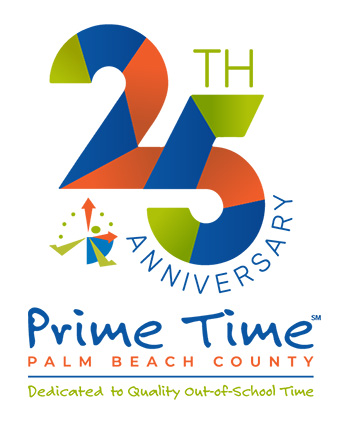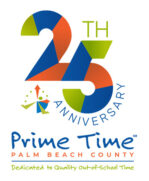
written by Anita Winkis, Quality Advisor,
Prime Time Palm Beach County
As the 2018-2019 school year came to a close, I spent time with out-of-school time directors as they prepared for summer. I discovered one consistent theme among them all: OST directors LOVE summer camp. They broke out into smiles when I asked them about the upcoming summer months. They enthusiastically told me about their plans and described looking forward to the end of the school year and the launch of summer camp. You would think that they would be looking forward their own rest and relaxation after their super-human efforts of running quality programs for 10 months, but no; they looked forward to spending the day with the youth in their summer camps.

In exploring their feelings about running a summer camp, another theme became evident: they enjoy summer camp so much because it isn’t anything like school. There isn’t a six-hour school day to unwind from when a youth enters summer camp; instead of putting efforts toward “re-setting” a youth’s day, summer camp allows the staff to set the day right from the start. In summer, youth have more choices. Directors say that they get to just be with their youth, and have authentic conversations and experiences with them.

If summer camp — as described by these directors and staff — is nothing like the school year, then can learning really be celebrated? Emphatically, yes!
We bring focus to this learning during National Summer Learning Week, which will be July 8- 13. During this week, we will bring awareness about the importance of summer programs and their role in the safety, health and learning of our youth when school is not in session.

Summer camp directors are still scheduling time for what is typically thought of as “learning.” You will see youth reading or participating in a literacy programs, or science, technology, engineering, arts and mathematics (STEAM) programs or virtual academic programs to help them grow and maintain skills. Look beyond the typical and you’ll see so much more.

You will see directors and staff who are trained and re-trained to keep youth safe. You will hear reminders about sunscreen, drinking water and staying with their groups. There are allergy lists, medication lists, specific-needs lists, all in place and not forgotten about by caring adults who know that learning can’t happen unless a child is physically safe and basic needs are addressed. What do the youth actually learn from this? They learn that they are cared for and can trust the adults with whom they’re spending the day, which is a key foundation to nuture any additional learning.

(Summer Camp)
You will see children and youth taking risks to learn a new skill as they see the adults in bathing suits, jump into the pool with them to cheer them on to higher levels of achievement. Youth are telling their camp counselors, “You kept telling me I could do it!” as they complete a swimming test. Youth see their counselors tripping when roller skating and share a laugh, building a sense of vulnerability that will let youth know that mistakes are to be expected, celebrated and learned from. Children and youth who struggle with traditional academics get to showcase their expertise in soccer, dance or strategizing when playing a game.

(Summer Camp)
Youth have more time to explore out-of-the-box life skills when summer camp is in session. Children who have challenges meeting expectations during the school year are now somehow engaged,participating and learning. In asking one director why this was happening in her camp, she described a child learning to manage his emotions and self-regulate by the director helping the child to understand that when he’s hungry, he can’t focus. Counselors were informed of this need and if the child didn’t have breakfast or maybe needed an additional mid-afternoon snack, he could go to the director to make sure he has something he needs to ensure his success that day.

Summer seems to be a time when camp counselors focus on those important social and emotional learning skills organically and maybe without even realizing the important work they’re doing in the lives of these children. They have the time to have extended conversations with their youth, which allows them to really learn about their lives, interests, hopes and fears. Summer camp brings the opportunities and experiences to build true community among all those participating, both youth and adults, and those feelings continue into the school year. One director said that the shared experiences help create so much trust that she can refer back to those experiences during the school year when she needs to redirect a youth experiencing a challenge or crisis.

So, here’s to all those working in summer camps this year. Here’s to the relationships being built and the life skills being honed. Here’s to new experiences that could translate into life-long interests. Here’s to National Summer Learning Week and to celebrating those who understand that often the most meaningful and impactful learning happens outside the traditional classroom.

